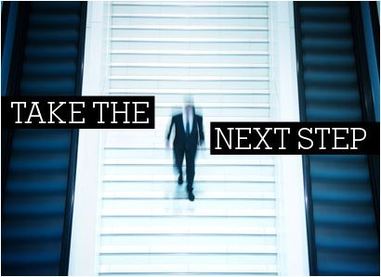|
It all starts with a thought, an idea, or a belief that you can do something at least as well than anyone else and maybe even better than anyone else. Maybe your idea is brand new and novel. Or maybe you had that epiphany standing in line at the DMV about how you would do something different than anyone else. We’ve all heard the saying, “build a better mousetrap and the world will beat a path to your door.” It might be a tiny bit more complicated than that, but you get the gist. I should disabuse you of the thought of originality right now. Almost nothing you can think of is going to be new. It might be unique to you, but something like it has probably been done already. Maybe it has been done poorly or well, but it is extremely unlikely your idea will be 100% original. Before you get upset and say something along the lines of “how do YOU know that”, let me give you some background. Today, the world has somewhere north of 7 billion people living on it. Quite a large number of those folks are smarter, way smarter, than you. And many millions of them are very, very hungry – for food, in some cases, but also hungry to change their economic situation. Where can you see their efforts to move beyond their current situation? You can search the patent office files to see evidence of creative peoples thinking. There are patents for things that are amazing and also plenty of nutty ideas as well. The role of the patent office is not to pass judgment on the merits of the idea, but rather on the originality and uniqueness of the idea. So just because you have an idea, and can get a patent on it, that doesn’t mean it is going to make you a dime. Or that you won’t get sued for appropriating someone elses' idea even if your idea is only tangential to theirs. If you are successful, there is no question that you will be sued, sooner or later. But if you’ve protected yourself by following this text, you should be in a very good place to defend your idea. Remember, if it stinks as an idea, likely no one will care.
Perhaps it is something you can patent, an invention of some sort. Usually there are diagrams, drawings, operator manuals, photos, and a slew of other written parts that accompany the invention that can be copyrighted. Or the invention is all words. Some sort of book, article or document that describes a process, a procedure, or something that has some value to someone else. All of those can be copyrighted and-or trademarked, and you see evidence of that in many places. It is the small letter “c” in a circle like this…© and it should appear right next to the year date of copyright and the owner of the copyright. Just look at the title page of a book. The trademark is the “TM” symbol and is usually superscript like this™, although I’ve seen is subscript too, but not very often. Just stick to the super! This is also known as a provisional, as in you haven’t really received an official government trademark. You are just claiming it right now. The official trademark is the circled “r” like this®. We will get into what can be trademarked in a few minutes. But we have jumped ahead a bit. BEFORE you even start thinking about patents, copyrights and the like, let us explore the idea more deeply. At this point you have an idea of a thing, a process, something that you think might be valuable. Something that people will actually open their wallet for. I cannot tell you how many ideas I have had just like that! I just knew that each one of those things was going to make me millions! Then, for each gizmo, I started telling my wife about it, then my adult children, then my neighbor. Once the laughter settled a bit, I starting thinking maybe this idea was a little half-baked. Maybe it wasn’t exactly ready for prime time. I decided I was not ready to start pouring money into it. As a matter of fact, it really sucks. Get over it, it happens. You get the gist right? Tell more people about it. If the idea is good, you might get good advice. But more likely, they will all just say “oh that’s a real money maker alright.” Uh-huh, sure it is. This is why you are reading this – I am going to share a vital bit of information for you that might prevent you from squandering your retirement money. Do not use friends and family to determine whether or not your idea is valuable. EVER. They will NOT give you honest advice because they value your friendship and are naturally afraid if they shoot down your “fabulous” idea that friendship will hit the rocks. You need to find two or three people, people that you know, like local business owners, who are brave enough to give you honest feedback. Let’s call them a board of advisors. Nothing fancy and they don’t have to even know the others in the group. But their role is to examine the idea and let you know it won’t work or it might work. They may even go another step and suggest a few tweaks to the idea. Who knows, if it’s a killer idea they might even want to invest! If that happens, you might have something good. Maybe, maybe not, but at least things are looking up. So the bottom line is you need unbiased advice from at least three other people who are businessmen/women who understand the business world, who are not your relatives or close friends! Trust me on this one. Stop right now and write down the names of at least three people who fit the bill: Name: ________________________________ Name: ________________________________ Name: ________________________________ The Next Big Step This is where you go next. Now you need to run that idea by someone who can actually help you put it into practice. Someone who can make it happen. A professional, if you will. As an angel investor I have helped many people at this stage and there are many other people and organizations out there that do the same. In my particular case, I have an interest in your idea because I might want to invest in it or even buy an equity stake if it is really over the top. Yes, you heard me correctly, just like Shark Tank on television. Or the show called The Profit might even be a better example.
If the idea not only has merit, but has financial potential, based on my 40 years in business, then I would be a fool not to try and get a piece of the action. In return, I'm going to want to lend you, the idea maker, both my money and my experiences at building a company and getting the thing made, distributed, and sold far and wide. That is what I do. Consider for a moment this idea. I think you should bring in the angel investor first, before you begin. They have to understand your business processes, current potential customer base, and work with you to create a plan appropriate for your industry. Then, and only then, will the consultant build a strategy to find the right avenue to sell the product. All of this will take time and money. But when you put an investor on the payroll and your business starts to take off like a jet fighter, I think you will be pretty happy. The next problem might be too many sales. Maybe you won’t be able to keep up! That’s a problem we all want to have. Don’t waste time. Use an investor! ----- Tidewater Capital Services is an international private investment firm based in Charlotte, North Carolina. We believe that the true economic value of every asset is realized over the long term. Often that means holding an investment for years. To capture the true economic value, we seek to invest our own capital where there is a high-growth potential business, run by intelligent, trustworthy founders. Our capital, along with our many decades of experience, will often be the difference between success and failure. We encourage you to review our equity investment criteria page for more information. Lee West - Founder & C.E.O., Tidewater Capital Services. -----
0 Comments
Your comment will be posted after it is approved.
Leave a Reply. |
AuthorMy name is Lee West. I help people develop their businesses into industry leaders so they can achieve their dreams. Thank you for reading. Archives |


 RSS Feed
RSS Feed